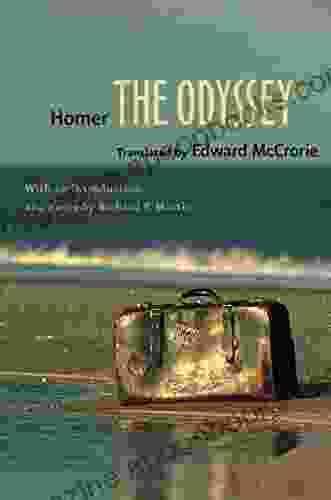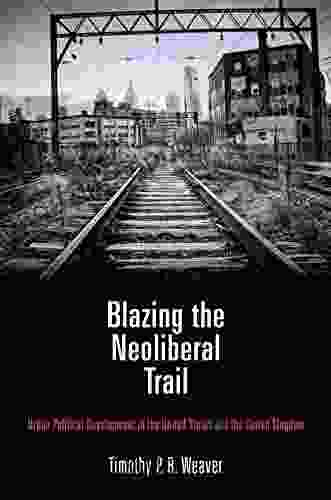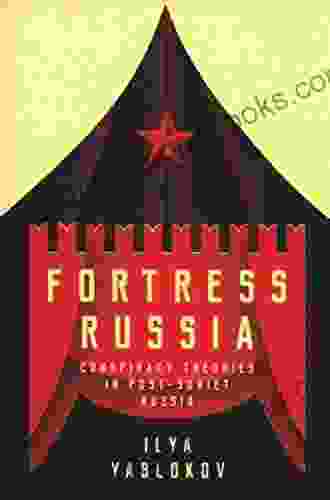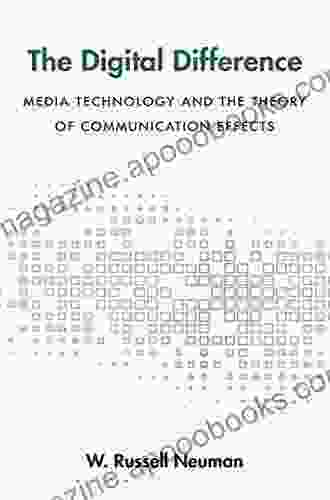Unraveling the Labyrinth of Conspiracy Theories: A Deep Dive into the Post-Soviet World

The dissolution of the Soviet Union in 1991 marked a watershed moment in global history, leaving behind a legacy of geopolitical upheaval and societal transformation. In the wake of this seismic shift, a fertile ground emerged for the proliferation of conspiracy theories, which have become deeply embedded in the post-Soviet psyche. This article embarks on an in-depth exploration of the factors fueling these theories in the region, unravelling the historical, social, and cultural threads that have woven this intricate tapestry of paranoia and suspicion.
Historical Roots: A Legacy of Secrecy and Control
The history of conspiracy theories in the post-Soviet world is inextricably linked to the oppressive nature of Soviet rule. Decades of authoritarianism, pervasive surveillance, and strict censorship bred a deep distrust of authority and a fertile environment for alternative narratives to take root. The KGB, the infamous Soviet secret police, was particularly adept at spreading disinformation and manipulating public opinion. Its tactics, honed during the Cold War to sow discord among Western nations, would later be employed domestically to suppress dissent and control the flow of information.
4.1 out of 5
| Language | : | English |
| File size | : | 692 KB |
| Text-to-Speech | : | Enabled |
| Screen Reader | : | Supported |
| Enhanced typesetting | : | Enabled |
| Print length | : | 288 pages |
| Lending | : | Enabled |
The KGB's legacy of deception and mistrust extended far beyond the collapse of the Soviet Union. In the post-Soviet era, former KGB officers found employment in government agencies, security forces, and the media, perpetuating a culture of secrecy and suspicion within key institutions. This, coupled with the rise of oligarchs and their opaque financial dealings, created a fertile ground for conspiracy theories to flourish.
Social Dynamics: Coping with Uncertainty and Disillusionment
The societal upheaval that accompanied the Soviet collapse left many feeling disoriented and vulnerable. The loss of a shared ideology, coupled with the economic and political turmoil that ensued, created a sense of uncertainty and disillusionment. Conspiracy theories, with their simplistic explanations and comforting sense of Free Download, offered a way to make sense of the chaos and regain a semblance of control.
Furthermore, the post-Soviet era has witnessed a growing gap between the wealthy elite and the masses. This inequality, often perceived as unjust and driven by corrupt practices, has fueled resentment and distrust, fostering a breeding ground for conspiracy theories that target the rich and powerful.
Cultural Factors: The Power of Myth and Folklore
Cultural factors also play a significant role in the prevalence of conspiracy theories in the post-Soviet world. The region has a rich history of folklore and mythology, with a deep-seated belief in supernatural forces and hidden agendas. These cultural narratives often provide a fertile soil for conspiracy theories to take root and spread like wildfire.
In addition, the post-Soviet era has witnessed a revival of interest in Russian nationalism and Slavic mythology. This cultural resurgence has, in some quarters, been accompanied by a rejection of Western values and institutions, fostering a climate conducive to conspiracy theories that portray the West as a hostile force intent on undermining Russian interests.
Digital Diaspora: Conspiracy Theories in the Age of the Internet
The advent of the internet and social media has further amplified the spread and reach of conspiracy theories in the post-Soviet world. Social media platforms, with their echo chambers and algorithms designed to maximize engagement, have become breeding grounds for the dissemination of unverified information and outlandish claims.
In the post-Soviet context, where traditional media outlets are often distrusted, social media has emerged as a primary source of information for many. This, coupled with the region's high internet penetration rates, has created a perfect storm for conspiracy theories to flourish and spread unchecked.
Case Studies: Unraveling Specific Conspiracy Theories
To illustrate the complex dynamics at play, let us delve into specific conspiracy theories that have gained traction in the post-Soviet world:
- The "Color Revolutions": A series of uprisings that swept across Eastern Europe and Central Asia in the early 2000s, these revolutions were widely seen as pro-Western and anti-Russian. Conspiracy theories emerged claiming that these uprisings were orchestrated by the US and other Western powers to destabilize Russia's sphere of influence.
- The MH17 Tragedy: The downing of Malaysia Airlines Flight MH17 over eastern Ukraine in 2014 has been the subject of numerous conspiracy theories. Some claim that the plane was shot down by Ukrainian forces, while others allege Russian involvement or even a false flag operation orchestrated by the West.
- The COVID-19 Pandemic: The global pandemic has fueled a surge of conspiracy theories in the post-Soviet world, ranging from claims that the virus was created in a lab to accusations that vaccines are part of a sinister plot to control the population.
Countering Conspiracy Theories: A Multifaceted Approach
Combating conspiracy theories in the post-Soviet world requires a multifaceted approach that addresses the historical, social, and cultural factors that contribute to their prevalence. This includes:
- Promoting Critical Thinking: Education is key to fostering critical thinking skills and equipping individuals with the tools to evaluate information and distinguish fact from fiction.
- Improving Media Literacy: Media literacy programs can help individuals navigate the complex media landscape and identify reliable sources of information.
- Transparency and Accountability: Governments and institutions must strive for transparency and accountability to rebuild trust and combat the spread of misinformation.
- Countering Disinformation Campaigns: Targeted efforts are needed to expose and counter disinformation campaigns that spread conspiracy theories and sow discord.
: Embracing Complexity, Transcending Paranoia
The world of conspiracy theories in the post-Soviet world is a complex and ever-evolving landscape. Understanding the historical, social, and cultural factors that shape these beliefs is crucial for developing effective strategies to counter their spread and promote a more informed and rational society.
By embracing complexity, transcending paranoia, and fostering critical thinking, we can navigate the labyrinth of conspiracy theories and emerge into a world where truth and evidence guide our understanding of the past, present, and future.
4.1 out of 5
| Language | : | English |
| File size | : | 692 KB |
| Text-to-Speech | : | Enabled |
| Screen Reader | : | Supported |
| Enhanced typesetting | : | Enabled |
| Print length | : | 288 pages |
| Lending | : | Enabled |
Do you want to contribute by writing guest posts on this blog?
Please contact us and send us a resume of previous articles that you have written.
 Book
Book Novel
Novel Page
Page Chapter
Chapter Text
Text Story
Story Genre
Genre Reader
Reader Library
Library Paperback
Paperback E-book
E-book Magazine
Magazine Newspaper
Newspaper Paragraph
Paragraph Sentence
Sentence Bookmark
Bookmark Shelf
Shelf Glossary
Glossary Bibliography
Bibliography Foreword
Foreword Preface
Preface Synopsis
Synopsis Annotation
Annotation Footnote
Footnote Manuscript
Manuscript Scroll
Scroll Codex
Codex Tome
Tome Bestseller
Bestseller Classics
Classics Library card
Library card Narrative
Narrative Biography
Biography Autobiography
Autobiography Memoir
Memoir Reference
Reference Encyclopedia
Encyclopedia Howard Schultz
Howard Schultz Heidi Hayes Jacobs
Heidi Hayes Jacobs Steve J Spears
Steve J Spears Ira Shor
Ira Shor Lisa Cooper
Lisa Cooper Ian M Malcolm
Ian M Malcolm Ian Stables
Ian Stables Helen Philipps
Helen Philipps Sara Joy Warne
Sara Joy Warne Heinrich Gerlach
Heinrich Gerlach Maceo Montoya
Maceo Montoya Herbie Hancock
Herbie Hancock Horace Cooper
Horace Cooper Patrick R Dempsey
Patrick R Dempsey Hammond Innes
Hammond Innes Sara Lev
Sara Lev Henry Fielding
Henry Fielding Savannah Rylan
Savannah Rylan Irene Vasilachis De Gialdino
Irene Vasilachis De Gialdino Indu Sundaresan
Indu Sundaresan
Light bulbAdvertise smarter! Our strategic ad space ensures maximum exposure. Reserve your spot today!

 Gabriel Garcia MarquezThe Odyssey: Johns Hopkins New Translations From Antiquity – Unlocking the...
Gabriel Garcia MarquezThe Odyssey: Johns Hopkins New Translations From Antiquity – Unlocking the...
 David Foster WallaceUrban Political Development In The United States And The United Kingdom
David Foster WallaceUrban Political Development In The United States And The United Kingdom Eliot FosterFollow ·12.4k
Eliot FosterFollow ·12.4k Forrest ReedFollow ·8.4k
Forrest ReedFollow ·8.4k Yukio MishimaFollow ·16k
Yukio MishimaFollow ·16k Billy FosterFollow ·12k
Billy FosterFollow ·12k Mark MitchellFollow ·16.7k
Mark MitchellFollow ·16.7k Harry CookFollow ·7.3k
Harry CookFollow ·7.3k Stephen KingFollow ·3.8k
Stephen KingFollow ·3.8k Jerome BlairFollow ·10.8k
Jerome BlairFollow ·10.8k

 Stanley Bell
Stanley BellUnlock the Secrets of Powerball Success: Master the...
Prepare to shatter the odds and transform...

 Ernest J. Gaines
Ernest J. GainesPatti Smith Horses 33 55: A Photographic Journey into a...
Journey into the raw and...

 Isaiah Price
Isaiah PriceMoyamoya Disease Diagnosis And Treatment: A Comprehensive...
Moyamoya Disease...

 Joseph Foster
Joseph FosterRecent Advances in Ophthalmology, Volume 14
Editor: [Editor's...
4.1 out of 5
| Language | : | English |
| File size | : | 692 KB |
| Text-to-Speech | : | Enabled |
| Screen Reader | : | Supported |
| Enhanced typesetting | : | Enabled |
| Print length | : | 288 pages |
| Lending | : | Enabled |












